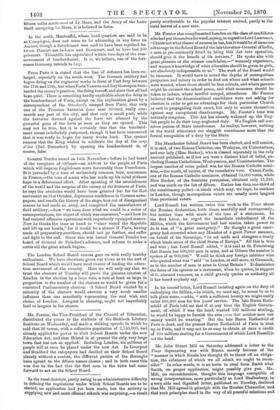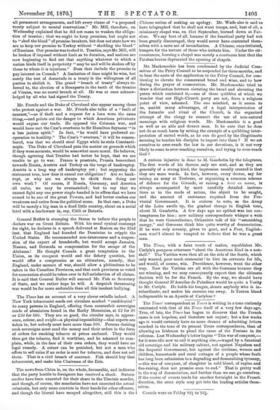Mr. John Stuart Mill on Saturday addressed a letter to
the Times deprecating war with Russia merely because of the "manner in which Russia has thought fit to throw off an obliga- tion, the substance of which we all admit we ought to recon- sider." In other words, it is no harm to steal from Smith what Smith, on proper application, might possibly give you. Mr. Mill, on reconsideration, thought this language susceptible of wrong interpretations, more particularly as Lord Shaftesbury, ia a very able and dignified letter, published on Tuesday, declared that Mr. Mill agreed in principle with the Russian Chancellor, and that such principles stood in the- way of all peaceful solutions and all permanent arrangements, and left every clause of "a proposed treaty subject to mental reservations." Mr. Mill, therefore, on Wednesday explained that he did not mean to weaken the obliga- tion of treaties ; that we ought to keep promises, but ought not to "shed the blood" of promise-breakers, bid does not state how we are to keep our promise to Turkey without "shedding the blood" -of Russians. Our promise was to shed it. Treaties, says Mr. Mill, will be broken if imposed without limit as to duration, and nations are mow beginning to find out that anything whatever to which a nation binds itself in perpetuity "may be and will be shaken off by -those to whom it is injurious." Does that include the promise to pay interest on Console? A limitation of time might be wise, but surely the test of desuetude in a treaty is the willingness of all parties to abolish it. The grand "breach of treaty" always re- ferred to, the election of a Bonaparte in the teeth of the treaties -of Vienna, was no moral breach at all. He was at once acknow- ledged by all who had signed the Treaty.



































 Previous page
Previous page